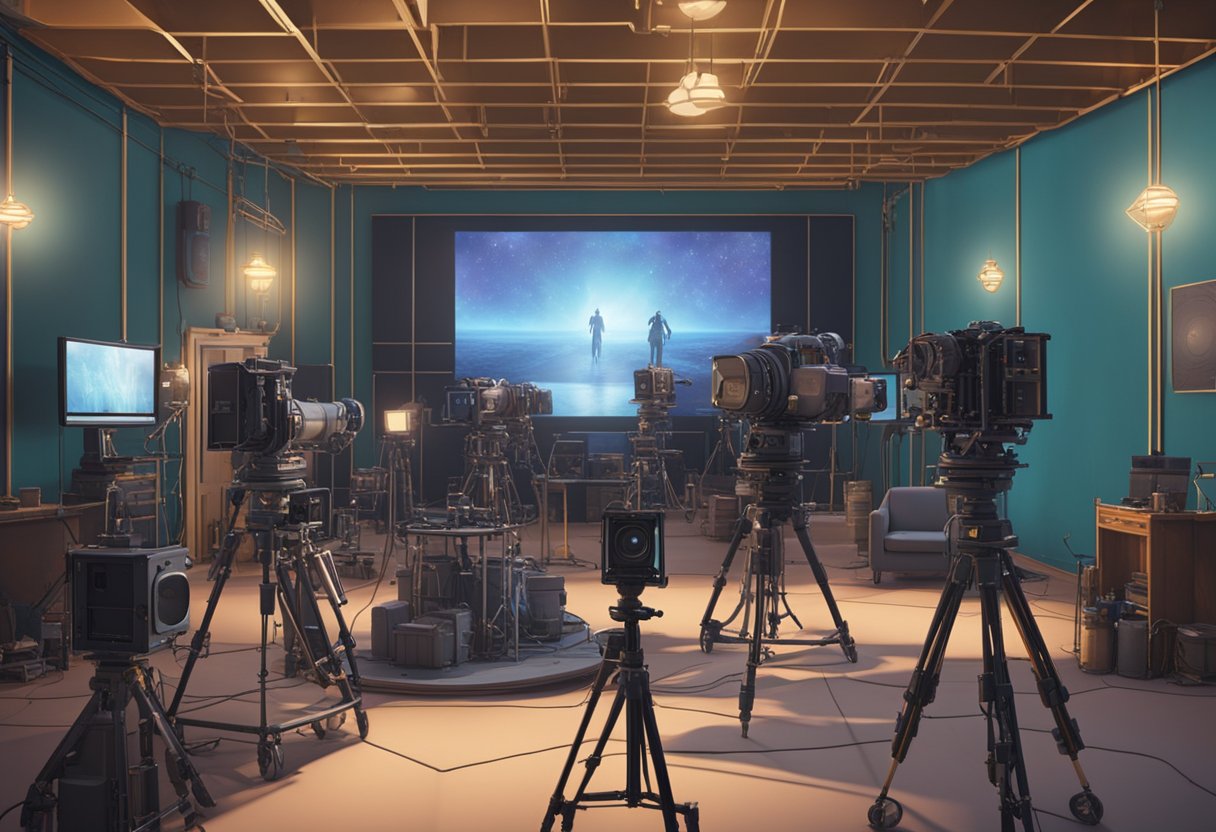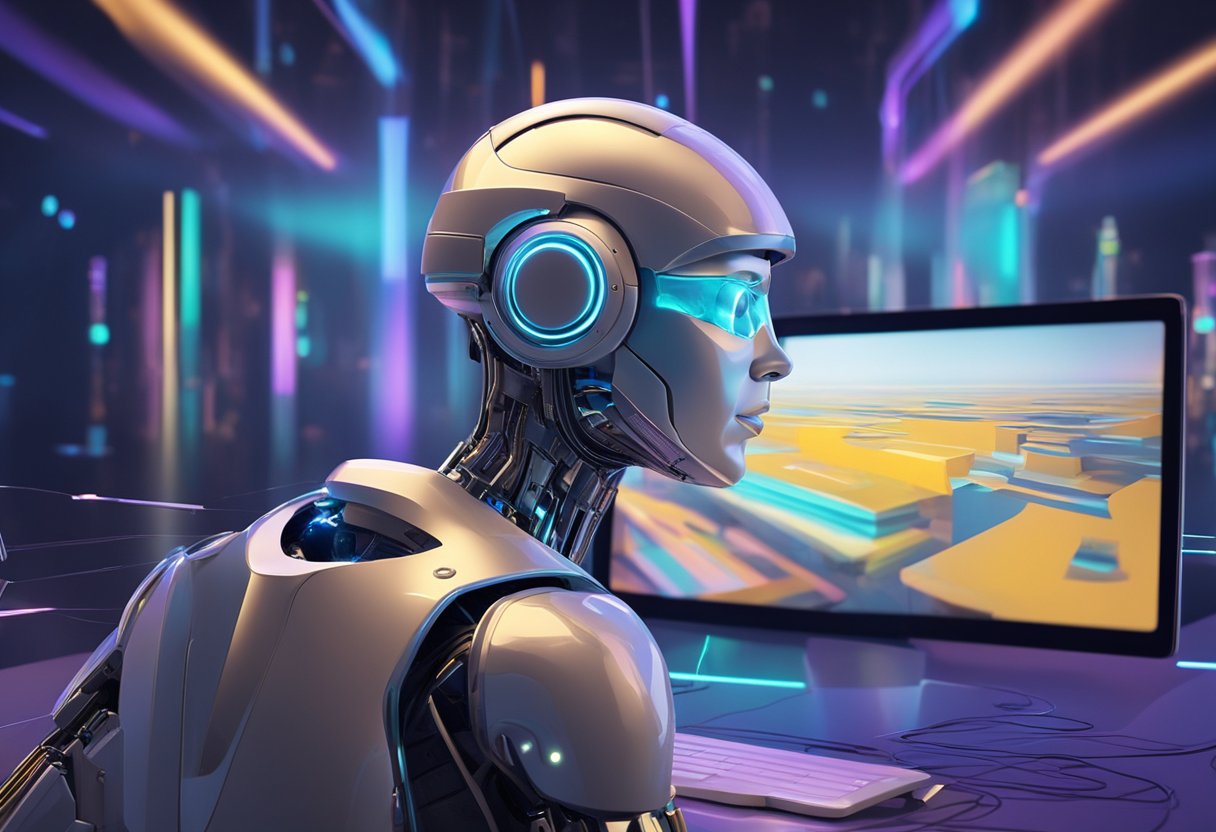The entertainment landscape is rapidly evolving as artificial intelligence (AI) technologies forge new pathways in movies, music, and art. Innovations in AI are not just reshaping how content is created, but also enhancing how audiences engage with various forms of entertainment. In movies, AI-driven software is revolutionizing special effects, scriptwriting, and even casting processes, leading to more sophisticated storytelling and production. For music, AI algorithms are creating new compositions and sounds, assisting artists in the creative process, and personalizing listening experiences for fans. This merger of AI with entertainment promises to create entirely new genres and possibly even redefine the roles of artists and creators.
In the realm of art, AI’s touch is increasingly evident through the rise of algorithm-generated artwork and interactive installations. These advancements are blurring the traditional boundaries between creator and audience, with AI often acting as a collaborator in the artistic process. The synergy between AI and entertainment is not only redefining the current industry but also setting a dynamic stage for the future. As technology continues to evolve, both creators and consumers are discovering the thrills and challenges of a more connected, AI-integrated entertainment world.
Key Takeaways
- AI is transforming the creation and consumption of entertainment in movies, music, and art.
- Technological advancements in AI are catalyzing new forms of storytelling and artistic expression.
- The integration of AI enhances user experiences, offering personalized and innovative interactions.
The Impact of AI on Movie Making
Artificial intelligence is not just transforming industries; it’s reshaping how movies are made. From crafting smart scripts to revolutionizing post-production, AI’s role in filmmaking signals a new era in Hollywood.
Scriptwriting and Story Development
Gone are the days when scriptwriting was solely a writer’s toil. Now, AI infuses new life into scripts by analyzing data-driven trends to suggest plot points and storylines. AI doesn’t replace the human touch but offers writers fresh perspectives, helping to refine character arcs and even sharpen dialogue. It’s like having an intelligent assistant who’s read every script in Hollywood.
Virtual Actors and AI-Driven Performance
Virtual actors are stepping onto the cinematic stage, thanks to AI technology. These digital thespians can be programmed to perform in myriad ways that human actors may find challenging or dangerous. Moreover, AI-driven performance capture can create nuanced expressions on virtual characters, offering filmmakers a blend of creativity and realism previously unattainable.
Post-Production and Visual Effects
The heavy lifting in post-production has become more efficient as AI streamlines editing and polishes visual effects. Sophisticated algorithms can sift through hours of footage to find the best takes or even alter the weather in a scene. AI is not just a tool; it’s becoming an inherent part of the production process, ensuring that the final cut is as sharp as it can be.
AI’s Role in Music and Art Evolution
Artificial Intelligence (AI) is revolutionizing the music and art scenes, reshaping the methods of creation and the roles of creators. AI’s integration is profoundly affecting music composition, artistic design, and the broader culture of creativity within the entertainment industry.
Music Composition and Production
In the music industry, AI is transforming music composition and production by enabling the creation of complex musical pieces without human intervention. AI algorithms can analyze vast datasets of music to generate new compositions that cater to the evolving tastes of listeners. This tech-driven approach not only accelerates the music creation process but also pushes the boundaries of genre and style. For example, AI-powered tools assist artists by suggesting chord progressions or creating accompaniment tracks, thus enhancing creativity and efficiency.
AI-Generated Art and Design
The field of art has witnessed the emergence of AI-generated art and design, which is challenging the conventional norms of the art world. Using machine learning algorithms, AI can produce artworks that mimic the styles of human artists or create entirely new aesthetics. These AI-generated pieces are making their way into galleries and stirring discussions on intellectual property and the essence of creativity. The technology is not only altering how art is made but also how it is experienced, implying a shift in the cultural landscape.
Impact on Human Artists and Creativity
While AI brings impressive technological prowess to the table, it also poses reflective questions about the role of human artists. Some fear that AI may overshadow human contribution; however, there is potential for a symbiotic relationship where AI acts as a collaborator rather than a replacement. The entertainment industry is observing a new kind of partnership emerge, where artists leverage AI to enhance their creativity. Artists are experimenting with AI to explore new forms of expression, while the dialogue on authorship and intellectual property in AI creations continues to evolve.
Enhancing User Experience Through AI
In the rapidly evolving landscape of entertainment, AI is revolutionizing how people consume movies, music, and art. By refining recommendation systems and interactive experiences, AI is shaping a more tailored and engaging user journey.
Recommendation Engines and Personalization
Streaming giants like Netflix and Spotify have developed complex AI-driven recommendation engines that curate content aligned with individual preferences. They analyze vast amounts of user data to suggest movies or songs that keep users coming back. This personalized experience is not just about observing past behaviors but predicting future tastes, blurring the line between choice and suggestion.
- Key Factors for Personalization:
- Viewing history
- Search queries
- User ratings
Interaction and Engagement
Social media platforms such as TikTok and YouTube leverage AI to boost engagement. Through real-time interaction features and predictive analytics, these platforms enhance user involvement, creating a more immersive experience. For instance, TikTok’s AI identifies trending content and suggests similar videos, keeping viewers hooked and content creators informed.
- Tools Enhancing Interaction:
- Live comments
- Video recommendations
- Autoplay next content feature
Ethical Considerations and User Trust
As AI technologies advance, ethical considerations and user trust become paramount. Biases in algorithms can lead to a lack of diversity in content, while too much personalization might create “echo chambers.” Streaming platforms are tasked with building transparent AI systems that reflect diverse perspectives and safeguard user data.
- Ethical Concerns:
- Data privacy
- Algorithmic transparency
- Content diversity
By addressing these ethical issues and regularly auditing their AI systems, entertainment providers can maintain user trust and offer a valuable, equitable user experience.



